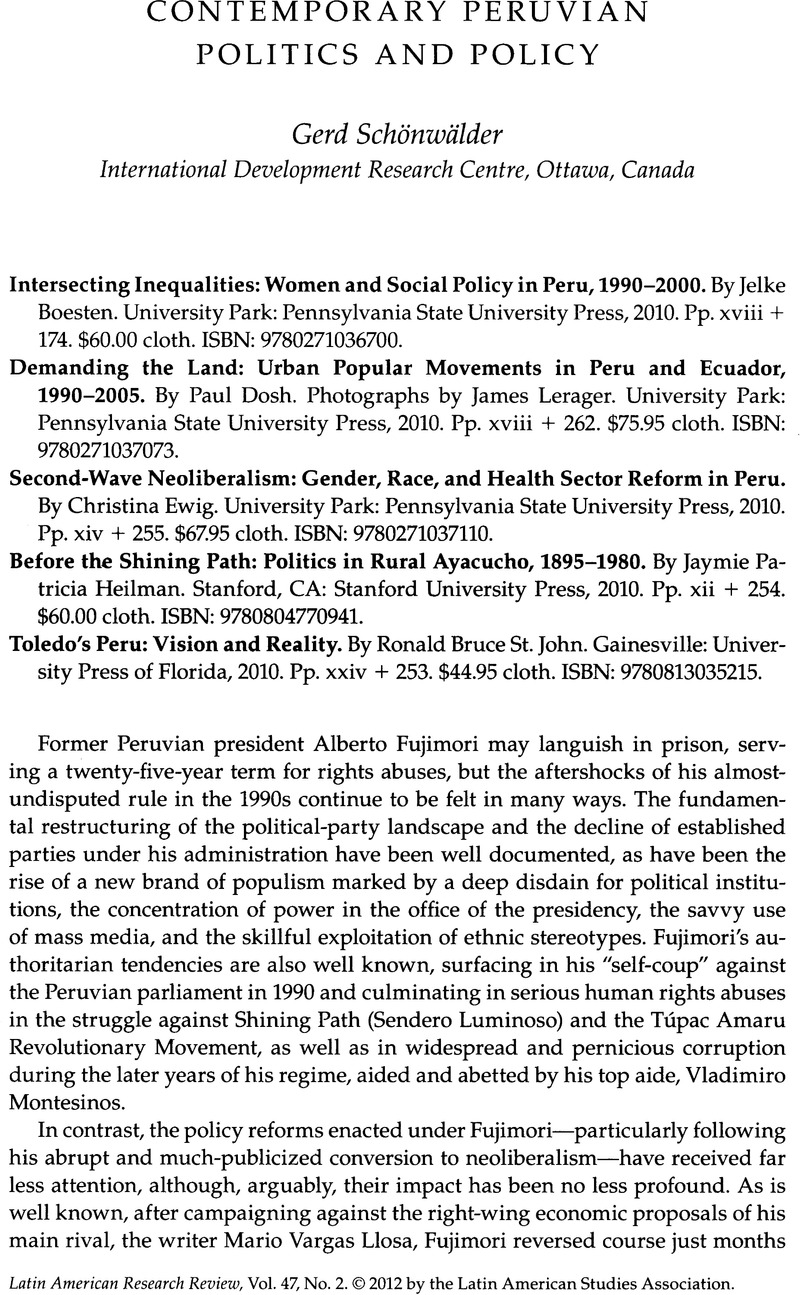No CrossRef data available.
Article contents
Contemporary Peruvian Politics and Policy
Review products
Published online by Cambridge University Press: 05 September 2022
Abstract

- Type
- Review Essays
- Information
- Copyright
- Copyright © 2012 by the Latin American Studies Association
References
1. See Doug McAdam, Political Process and the Development of Black Insurgency, 1930–1970 (Chicago: University of Chicago Press, 1982), especially 36–59. See also Doug McAdam, Sidney Tarrow, and Charles Tilly, Dynamics of Contention (New York: Cambridge University Press, 2001).
2. For example, Moisés Arce, Market Reform in Society: Post-Crisis Politics and Economic Change in Authoritarian Peru (University Park: Pennsylvania State University Press, 2005), puts the emphasis squarely on the two-way relationship of state reformers and civil society actors. Because these groups react to the costs and benefits of the reforms being implemented, their interaction is conditioned by key parameters of neoliberal policy making, such as fiscal restraint and the availability—or absence—of institutional points of access to make societal demands heard.


